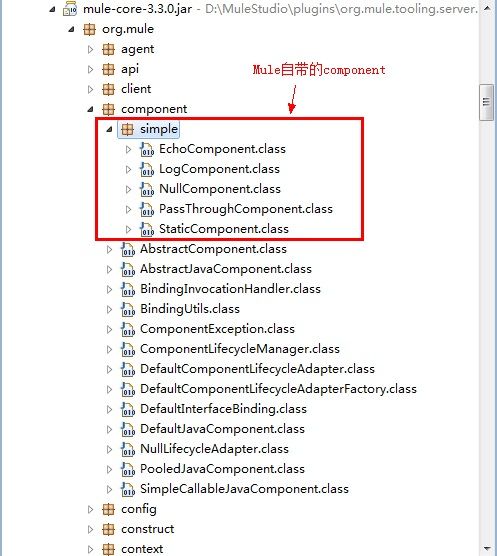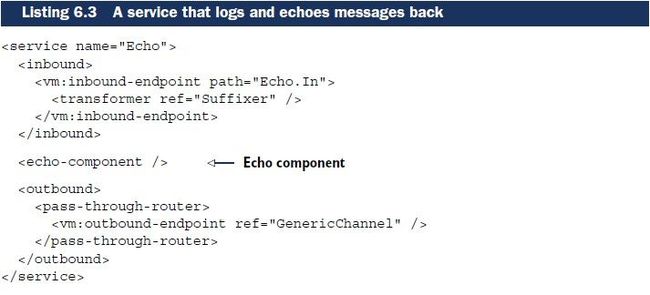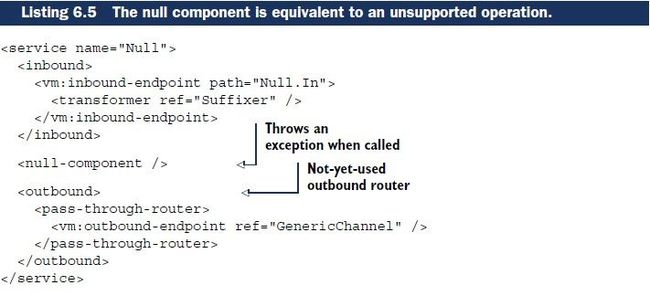Mule ESB的component(二)——Component的使用
一 Mule自带的component
打开mule的核心jar包mule-core-3.0.0.jar,可以看到如下结构,期中simple中的component即mule自带的component:
1. bridge component
mule中的每一个service中都会包含一个bridge component,它被隐式的引用了:
定义:This is the bridge component. As its name suggests, it bridges its inbound router to its outbound router, but doesn’t perform any particular operation on the message.
从定义中看,bridge component的作用是将message从inbound传递到outbound中,期间它对message没有任何操作。
在《Mule-ESB-3-User-Guide》中找到一段关于PassThroughComponent的描述,bridge component的默认实现类应该就是PassThroughComponent:
Service Bridge Service component configuration is optional in Mule 2.x. The default and implicit component used is PassThroughComponent . This component automatically bridges inbound messages to the outbound phase and simply passes messages to the outbound routers. This approach is useful for bridging endpoints if you want to pass a message from one transport to another.
2. echo component和log component
两者都是为了记录信息,从源码中分析,两者的关联是EchoComponent extends LogComponent,前者调用父类的方法进行日志输出。两者的差别是:echo将message的信息全部输出,而log会默认截取前100个长度的信息。
使用方法如下图,log component使用<log-component />替换<echo-component />:
3. null component
从源码中可以看到,当NullComponent接收到信息时,会抛出一个异常:
package org.mule.component.simple;
import org.mule.api.MuleEventContext;
import org.mule.api.lifecycle.Callable;
/**
* <code>NullComponent</code> is a service that is used as a placeholder. This
* implementation will throw an exception if a message is received for it.
*/
public class NullComponent implements Callable
{
public Object onCall(MuleEventContext context) throws Exception
{
throw new UnsupportedOperationException("This service cannot receive messages. Service is: "
+ context.getFlowConstruct().getName());
}
}
使用方法
4. StaticComponent
这个没有找到先关的资料,从api中可以看到该类的描述:
A service that will return a static data object as a result. This is useful for testing with expected results. The data returned can be read from a file or set as a property on this service.
这个component应该是mule用于测试时设置期望数据的组件。
二 远程调用
mule支持远程调用,它支持RPC和REST两类调用,由于对这两块技术是空白,所以大家自己研究吧= =!



